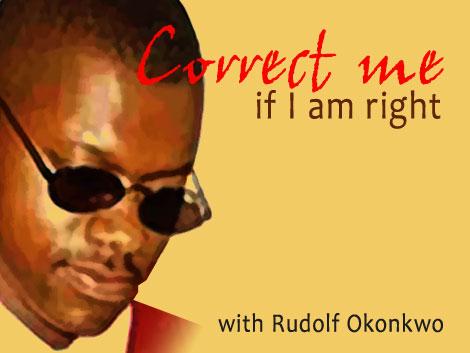
Put aside the Nigeria-Biafra Civil War, if anyone cares to line up people killed in Nigeria in religious and ethnic crises since 1945 in Jos, the figure must have surpassed that of Rwanda’s 800,000 deaths. The only difference is that ours come in increments. We have no monuments built for those killed. We have nobody tried for perpetuating those killings over the years. And we are in denial that a bigger one is on the way if we continue on this same path.
In his 2008 award winning book of short stories, “Say You’re One of Them,” Uwem Akpan told the story of a Rwandan girl caught in the genocide that happened in that country some 20 years ago. In the story, “My Parent’s Bedroom,” Monique, a 9-year-old girl whose mother is Tutsi and father is Hutu, endured the horror of a genocide unleashed by the Hutu-led government. The little girl did not understand what was happening to her world but that did not stop her and her little brother, Jean, from bearing the burden of the atrocities. In a pivotal moment in the story, her mother commanded her: “When they ask you, say you are one of them.” It was the only way for her to live.

Rwanda last July marked the 20th anniversary of the genocide, where 800,000 people, mainly Tutsi men, women and children were killed. The killings happened in just 100 days. The world stood by idly as hundreds of thousands died. Neighbors massacred neighbors. Mixed families had one parent killing another. The brutality of the bloodbath shocked the world on the 101st day. For the Rwandan, the trauma is etched in their souls. The nation is still processing its degree of insanity and they are yet to see closure.
In the last 20 years, the government of Rwanda has taken steps to bring about justice and peace. Perpetrators of the genocide have been tried in courts. Over 20,000 people have been tried. The United Nations also came in and conducted over 70 cases in its tribunal. Those found guilty have been sentenced. The survivors of the genocide and the children born after have a sense that actions have consequences and that there is a price to be paid for disregard of human life.
President Kagame has done a lot to memorialize the victims. There are memorials built to remember. The nation is determined not to forget, even as it moves forward. Twenty years after, the country is still demanding answers to some unanswered questions surrounding the incident. They are asking the French to explain its relationship with the Hutu government that carried out the genocide. The inability of France to come clean from that charge of being accomplice in the crime has damaged the relationship between Rwanda and France.
The history of Rwanda shows that the signs of the instability of the nation have always been there. The danger that it could explode and spillover have been a recurring concern. But those in authority have always been in denial. While stroking the fire of discord, they have always imagined that it would never get to that point. Some even imagined that if it did, the world would quickly come to their aid.
Even as Kagame stabilizes the country, he continues to pursue policies that, in the long run, may lay the foundation of a future genocide. Under the guise of protecting the fragile nation, the president is stifling opposing voices. His government is torturing and jailing opposition activists. The political space in the nation is closed to so many. What this does is build up pressure that will ultimately burst open when no one is watching.
There is a way to balance the need to protect the peace and tranquility regained in the last 20 years without setting into motion little abuses and killings that will ultimately lead to the big ones.
The genocide in Rwanda should be a lesson to all fragile African nations. Those who build political structures that are based on hatred and exclusion; those who pay lip service to fairness and equal treatment of citizens; those who sow the seed of ethnic and religious discrimination and superiority will eventually reap the fruit. When it will ripen and fall is a day the perpetrators cannot even predict. And the speed and the scope of the destruction that will follow will be anyone’s guess.
A large chunk of Nigeria’s middle belt region is currently undergoing a mini form of genocide. The news reel is full of targeted killings by one group against the other. In the North East, there is a systematic destruction of lives and properties in an unprecedented way. The Boko Haram insurgency has a field day killing men, women and children across small villages and small towns. The military on their part go in and level everything left standing under the guise of fighting Boko Haram.
Put aside the Nigeria-Biafra Civil War, if anyone cares to line up people killed in Nigeria in religious and ethnic crises since 1945 in Jos, the figure must have surpassed that of Rwanda’s 800,000 deaths. The only difference is that ours come in increments. We have no monuments built for those killed. We have nobody tried for perpetuating those killings over the years. And we are in denial that a bigger one is on the way if we continue on this same path.
At this year’s National Conference, the voices of dissent, those who feel alienated and isolated were not there. Their concerns were not looked at with all seriousness. There is this delusion that by ignoring them they will go away. But the truth is that they don’t. We can embrace illusion until the well runs dry.
The responsibility of the Nigerian government is to get majority of her citizens to say they are one of us. Unfortunately for Nigeria, one has to feel it, before he or she can say it.